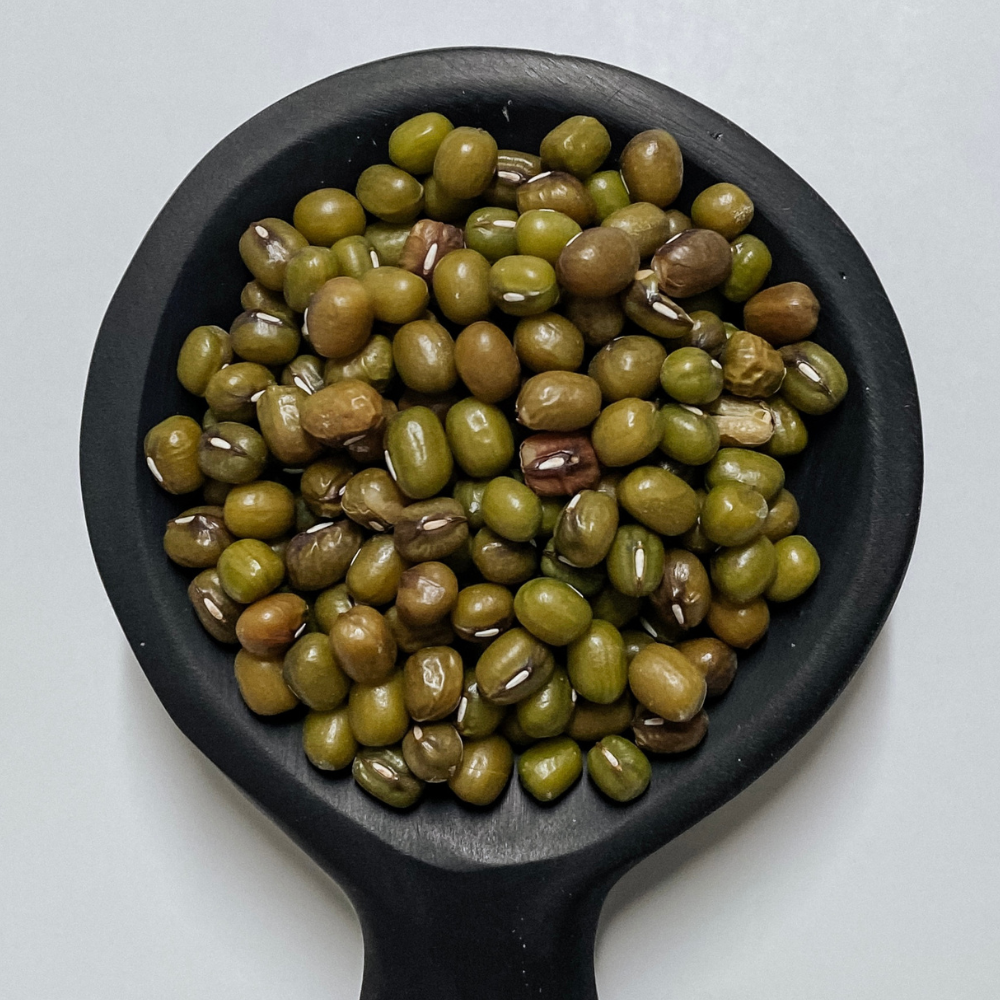Soltree Wholefoods
Mung Beans Organic
Mung Beans Organic
Couldn't load pickup availability
Organic Mung Beans are small, green legumes packed with nutrition and health benefits. Known for their versatility and delicate, slightly sweet flavor, mung beans have been a staple in Asian and Indian cuisine for thousands of years. They can be used in a variety of dishes, from hearty soups to fresh salads, and are also commonly sprouted for their crisp, nutritious sprouts. Mung beans are rich in plant-based protein, fibre, and essential vitamins, making them an excellent choice for a balanced and nourishing diet.
How to Use:
- Soups & Stews: Mung beans cook quickly and add a creamy texture to soups and stews. They’re perfect for lentil-style dals or hearty broths.
- Salads: Cooked mung beans can be added to salads for a boost of protein and fibre, making them a great base for grain bowls or veggie salads.
- Sprouting: Soak mung beans overnight and let them sprout for a few days. Mung bean sprouts are crunchy and fresh, great for salads, sandwiches, or stir-fries.
- Curries: Mung beans are commonly used in curries and dals. Their mild flavor absorbs spices well, making them a perfect companion for Indian and Thai seasonings.
- Mung Bean Paste: In sweet or savoury dishes, mung beans can be pureed into a paste used in fillings for buns, pancakes, or desserts in Asian cuisine.
Benefits:
- High in Plant Protein: Mung beans are a fantastic source of plant-based protein, making them an ideal ingredient for vegans, vegetarians, and anyone looking to boost their protein intake.
- Rich in Fibre: Mung beans provide a healthy dose of fibre, supporting digestive health, promoting regularity, and helping to regulate blood sugar levels.
- Nutrient-Packed: These beans are loaded with essential nutrients, including folate, magnesium, potassium, and iron, which support overall well-being.
- Antioxidant Properties: Mung beans are high in antioxidants, which may help reduce inflammation, neutralize free radicals, and promote healthy aging.
- Weight Management: The combination of protein and fibre in mung beans promotes satiety, helping you feel full and satisfied, which can support weight management efforts.
- Heart Health: The fibre, potassium, and magnesium in mung beans may contribute to heart health by helping lower cholesterol levels and regulate blood pressure.
How to Prepare:
- Soaking: To reduce cooking time, soak dried mung beans in water for a few hours or overnight.
- Cooking: Rinse mung beans thoroughly, then boil them in fresh water for about 20–30 minutes, or until tender. No need to pre-soak if you’re in a rush, as mung beans cook relatively quickly.
- Sprouting: To sprout mung beans, soak them in water overnight, then drain and rinse. Let them sit in a jar or sprouting tray, rinsing twice daily, and they will sprout in about 2–4 days.
- Mung Bean Paste: Boil mung beans until very soft, then mash or blend them into a paste for use in desserts or savoury dishes.
Storage Tips:
- Dry Mung Beans: Store in an airtight container in a cool, dry place for up to a year.
- Cooked Mung Beans: Once cooked, mung beans can be stored in the refrigerator for up to 5 days, or frozen for longer-term use.
Organic Mung Beans are a nutrient-dense, versatile legume that can elevate a variety of dishes. Whether enjoyed in soups, salads, or sprouted, they provide a wholesome source of plant-based protein, fibre, and essential nutrients. Add organic mung beans to your pantry for a delicious, healthy, and sustainable food that fits perfectly into a balanced diet.
Share


